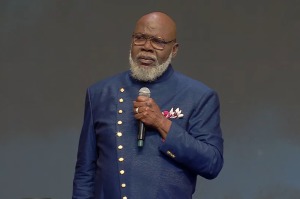What Should Evangelicals Make of the Rome Synod on the Family?

A Catholic friend texted me this morning: "Any Baptist churches have services in Latin? Asking for a friend." I texted back, "No, but the Feast of Saint John the Baptist lasts all year long." His was a sort of gallows humor, as he watched with dismay what some are calling a "pastoral earthquake" in the Roman Catholic Church on questions of marriage and family.
We don't yet know exactly what the report means, but reports indicate that the synod is asking for a more "pastoral" and "more inclusive" approach to cohabiting couples, same-sex partners, and others, while retaining the traditional Catholic views on sexuality and the family.
Should all of this even matter to those of us who are Protestants? We do not, as Martin Luther put it, accept the authority of popes and councils "since these have often contradicted one another." And yet, there are some important questions posed here, that we should consider.
I say "Amen" to the tone of mercy, here and elsewhere. It is quite right that there is no place among anyone bearing the name of Christ to act toward sinners with censoriousness. Christ Jesus came into the world not to condemn the world but that through him the world might be saved (Jn. 3:17).
At issue, though, is the concept of "gradualism," the idea that sinners do not immediately give up their sins, and often move gradually toward the grace of redemption. In one sense, that is quite clearly true, and not just with some sinners but with all of us. The gospel demonstrates that all of us fall short of God's law (Rom. 3:23). None of us, this side of death, arrive at full conformity with Christlikeness. If God's expectation of us, as Jesus taught us, is to love the Lord our God with all our hearts, minds, souls, and strength and our neighbors as ourselves, we, all of us, are sinning persistently, and thus always in need of God's grace, received through faith in Christ.
Moreover, it is true that many, maybe most, who come to faith and repentance do not do so immediately the first time they hear the proclamation of the gospel, but instead often mull over the things of God, as the seed of the gospel takes root in their hearts.
That is, I think, the primary difference in this discussion between the Catholic understanding of the church, and a believers' church model. The bishops rightly note that we should not drive sinners away, but that we should receive them and nurture them toward Christ. Amen to that. That's why we should, like Jesus himself and unlike his Pharisaical critics, be unafraid to eat with "tax collectors and sinners," to speak with the woman at the well. Our evangelism must meet people where they are, and take the time to, sometimes over years, explain the claims of the gospel and the meaning of new life in Christ.
Where I would differ with the Catholic Church is in the distinction between the "inside" and the "outside," between the church and the world.
The Apostle Paul tells the Church at Corinth that he is not advocating that they stop eating or associating with "the sexually immoral of this world, or the greedy and swindlers, or idolaters, since then you would need to go out of the world" (1 Cor. 5:9). He is, he writes, saying that they should not associate with those who do so unrepentantly and yet "bear the name of brother" (1 Cor. 5:11). Paul, as did Jesus, makes a fundamental distinction between those who are part of the community of the kingdom, the church, and those who are yet on the outside. "For what have I to do with judging outsiders?" the Apostle asks. "Is it not those inside the church whom you are to judge?"
The church is to welcome everyone as guests and observers, to hear the gospel preached and taught. The church is not itself, though, to be made up of unrepentant people. That's why scandalous sin is to be disciplined, and why the Lord's Table is to be offered only to those in right fellowship with God and with one another (1 Cor. 11:17-34).
Jesus patiently waits for sinners—of all sorts—to repent. That is true. He also tells them, in honest terms, what it means to follow him (see "Ruler, Rich Young"). The church is made up of those who have responded to that call, who are repenting of sin and who hold one another accountable for a life that signals the coming kingdom. The church is not like the world, a field of wheat and tares, a pen of sheep and goats. The church is a " chosen race, a royal priesthood, a holy nation," which means that we are "as sojourners and exiles, to abstain from the passions of the flesh, which wage war against the soul" (1 Pet. 1:9, 11).
Should we patiently love and offer the gospel to those who are refusing to repent of immorality, whether cohabitation of anything else? Yes. Should we baptize and admit those into membership those who refuse to walk away from such things? No.
Again, I am a Protestant, and I have no standing in the internal dispute of the Roman Catholic Church. But the questions raised here are important for us too. We must be people of truth and of grace, and this means we must call to repentance and offer mercy. We cannot sacrifice one for the other. John the Baptist proclaimed both "Repent for the kingdom of God is at hand" and "Behold the Lamb of God who takes away the sins of the world." We have no authority to do anything else.
We must love the mission field, and we must be clear about the mission, at the same time.





























